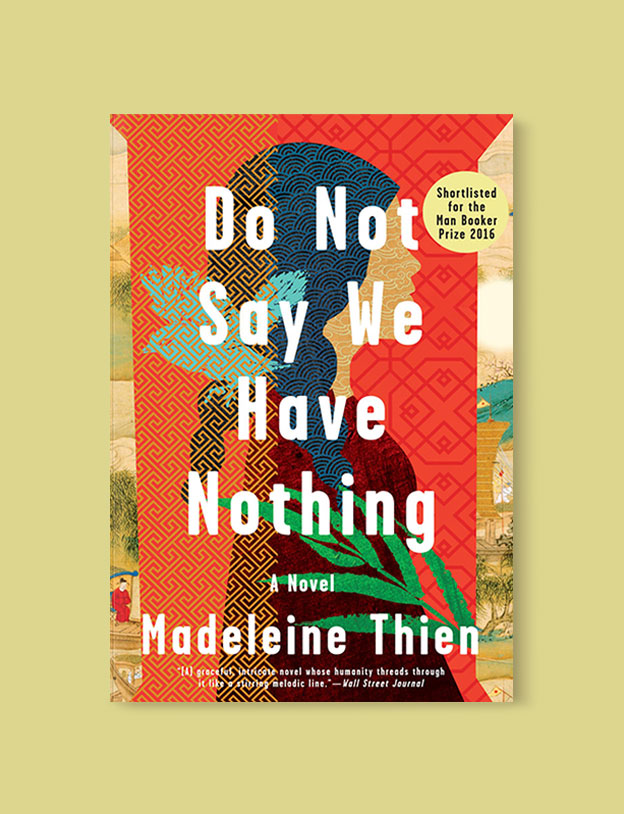
(He jumped from a ninth-floor window.) Two months later, Marie and her mother received a letter from a woman in China asking them to provide shelter for her daughter, Ai-ming, who had gotten in trouble during the demonstrations. The year was 1989, and his death roughly coincided with the massacre in Tiananmen Square, although he was in Hong Kong at the time. The first time, to end his marriage, and the second, when he took his own life.”Īnd so the story begins: Li-ling, whose English name is Marie, is a Chinese-Canadian mathematician recalling for us the mystery of her father’s sudden departure and suicide when she was 10 years old. Thien’s style is, here are the novel’s opening lines: “In a single year, my father left us twice.

To give a sense of just how seductive Ms.

The book impresses in many senses: It stamps the memory with an afterimage it successfully explores larger ideas about politics and art (the mind is never still while reading it) it has the satisfying, epic sweep of a 19th-century Russian novel, spanning three generations and lapping up against the shores of two continents. “Do Not Say We Have Nothing,” shortlisted this year for the Man Booker Prize, is Ms. As one of the characters rhetorically asks in “Do Not Say We Have Nothing,” the new novel by Madeleine Thien: “What was misfortune but the quality of existing as something, or someone else, inside?” Keeping two sets of selves was unbearable for millions.

The most they could do was protect whatever frail, ghostly sense of identity they still had.

Their virtues - their virtuosity - were brutally recast as moral weaknesses and a national threat. They were tortured and humiliated, accused of treachery and vanity and dispatched to work in the farms and factories of the hinterlands. This pointless dissipation of energy and talent perfectly describes the horrors that befell classical musicians during the Chinese Cultural Revolution. Wittgenstein wrote about this with what looks like staggering foresight in 1930: that in a time of cultural impoverishment, “the strength of the individual is wasted through the overcoming of opposing forces & frictional resistances.” If you are walking straight into a headwind, it is a triumph simply to keep yourself upright.


 0 kommentar(er)
0 kommentar(er)
